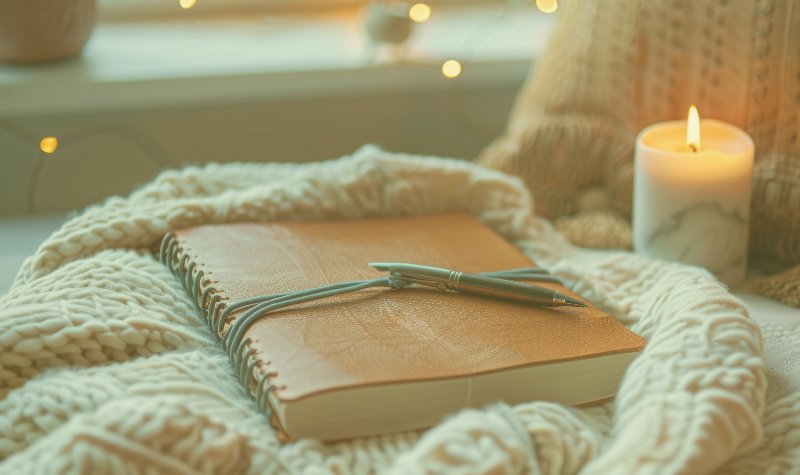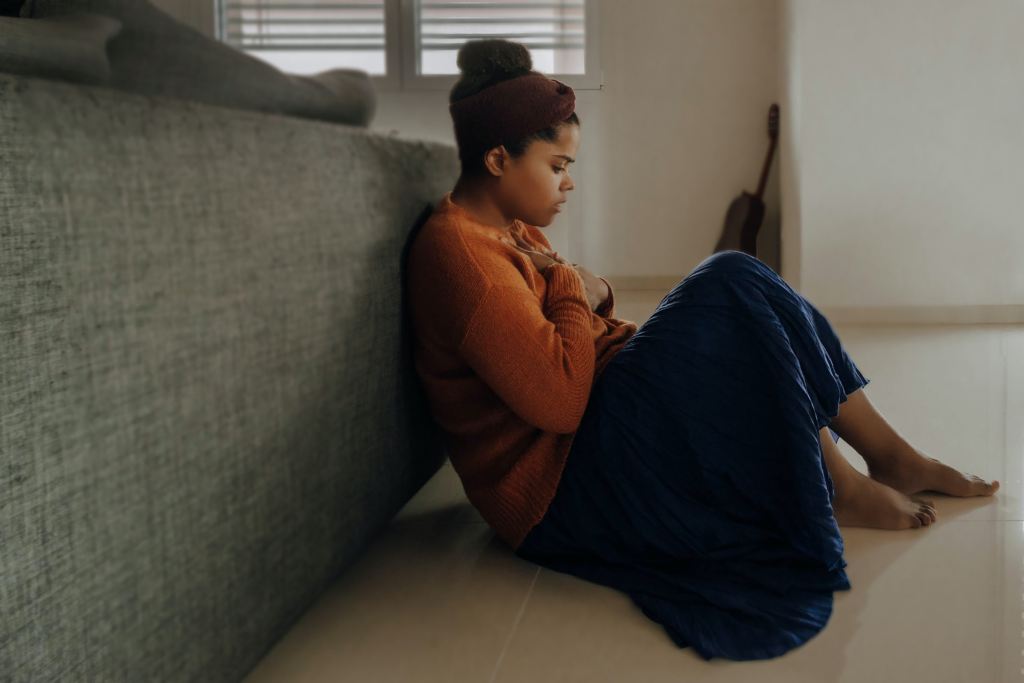Points discussed in this episode:
Anxiety and sleep can affect each other in a what seems like a never ending loop that’s very challenging to live with.
Anxiety makes the mind unsettled which keeps us awake with our worries. And lack of sleep can increase anxiety, creating a loop of sleeplessness and worry that feels hard to escape.
After a few nights of looping worries and poor sleep we might start to dread bedtime, and anticipate an anxious wakeful night, which makes it all the more challenging to relax and settle into good quality sleep.
The more we worry about not being able to sleep, the less likely we are to get a good nights rest.
Noticing Patterns
The mind often gets caught by anxiety in a particular place, common areas in the home where anxiety can break in are the bathroom and the bedroom. Maybe because they’re the quieter places where an unsettled mind is less distracted and can easily intrude on our peace.
Many living with anxiety also struggle more in the mornings when facing the day ahead, or the evenings when worrying about sleep, or what tomorrow might bring.
Noticing our patterns can help us see that anxiety is temporary, it’s not there all day, though it might feel like it is. It also gives us information on areas where we can make changes and seek support.
It helps to adopt an attitude of rising to anxiety and finding ways to calm it. We can’t absolutely guarantee a good night sleep but we can be as relaxed as possible and in the best state to invite sleep.
Acceptance and Inviting Rest
When we worry about not being able to sleep, or dread the coming night and start thinking about what might happen, we are suffering twice.
And it’s our default setting to do that. We resist what we don’t want to experience.
We need to sleep, we don’t like feeling anxious, and it’s often worse at night so we start anticipating the anxiety and being stuck awake with it and then we experience more anxiety. Our mind becomes preoccupied with what we don’t want.
It’s understandable, but it doesn’t help.
What does help is getting set up to be as relaxed, calm, and comfortable as possible.
We’ve shared tips on breathing, oil massage and guided relaxations in the previous episodes in this series. Give these practices a try and see what works well for you.
Writing
Practical writing: if you’re worried you might forget something tomorrow – write it down – make a list and trust yourself that you have that waiting for you in the morning.
Write a brief brain dump of your day and put it aside. Write with the intention of clearing, not getting caught in the details.
Then write out what you have to be grateful for.
It can be a supportive nightly routine to have a favorite chair to write in with a warm drink with the intention of leaving your thoughts and writing there before going to bed.
Tapping
If you have something specific on your mind that’s worrying you, try EFT Tapping to help dissolve anxiety and relax
And Guided Tapping Sessions for anxiety and sleep on our Patreon
Bedtime Supplement Recommendations
Tanasi CBD+CBDA to help you relax before bed.
save 25% with the coupon code: Slayer
Magnesium for calming anxiety and improving sleep



